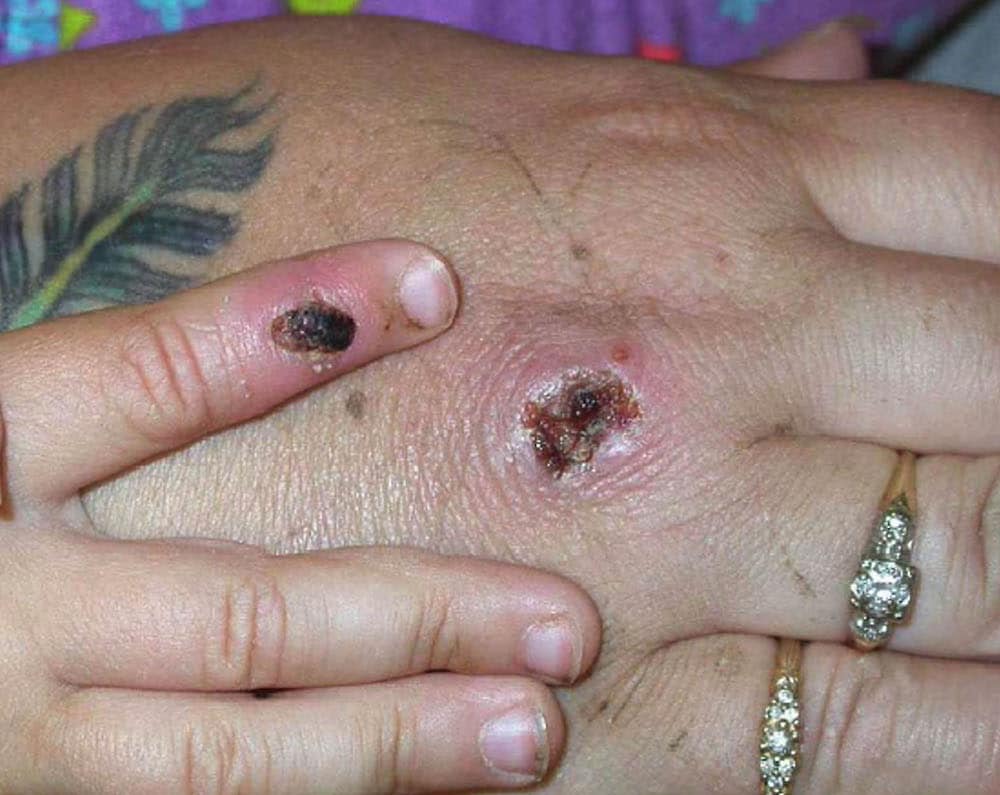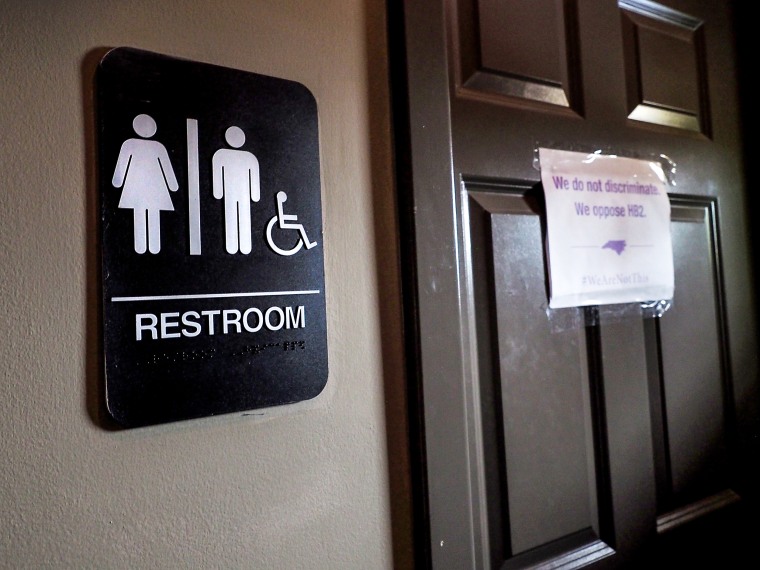“Little Women” author Louisa May Alcott very well might have been a transgender man
Louisa May Alcott: the name may as well be a synonym for “woman.” Her novel Little Women is a beloved, foundational text for girls the world over. An instant hit upon publication in 1868, the book has never gone out of print in the intervening 154 years. Countless women say that Little Women taught them how to be a woman, opening their eyes to the many paths their lives could take.
And yet, Alcott longed to be a man.
“Always believing she should have been born a boy,” writes John Matteson, in Eden’s Outcasts, his Pulitzer Prize-winning biography of Alcott, “she loved to participate vicariously in the adventures and discoveries of boyhood.” From childhood to old age, Alcott repeated the same sentiments in her letters and journals: she didn’t care for girls’ things; she’d been born with a boy’s spirit; she yearned to be a man, even describing herself as “a gentleman” and “a man.”
Was Alcott a trans man? That vocabulary didn’t exist in Alcott’s time, but, as the Louisa May Alcott Society says, “[It’s] so important to acknowledge that [Alcott] never fit a binary sex/gender/sexuality system.” Read on to learn more about Lou, and how her gender non-conformity influenced her beloved writing.
And yes, Alcott preferred “Lou” to “Louisa.”
Early in Little Women, Alcott’s avatar Jo March complains, “I can’t get over my disappointment in not being a boy.” Sister Beth soothes her, saying, “[Y]ou must be contented with making your name boyish, and playing brother to us girls.”
Much like Jo, Alcott almost never went by her full name, preferring more masculine alternatives. The Alcotts, who were big on nicknames, generally opted to call her “Lu” or “Louy” (pronounced “Louis”), and Alcott usually signed letters as “Lou” or “L.M. Alcott.” On the cover of the first edition of Little Women, Alcott is credited as L.M. Alcott. She also published under the androgynous pseudonym A.M. Barnard.
Wild and Queer
Even as a child, Alcott didn’t identify with girlhood.
“I don’t care much for girls’ things,” Alcott wrote in a childhood journal entry. “People think I am wild and queer.”
An outdoorsy, athletic child, Alcott made fast friendships with boys and delighted in their rough-and-tumble games — long past the point where such play was considered appropriate. “I fell with a crash into girlhood,” she wrote, in an 1855 letter to her father, “& continued falling over fences, out of trees, up hill & down stairs tumbling from one year to another till strengthened by such violent exercise the topsey turvey girl shot up into a topsey turvey woman.”
Alcott felt so removed from girlhood, in fact, that when a publisher asked her to write a “girls’ story,” she balked. “I never liked girls or knew many” she wrote in an 1868 journal entry, “except my sisters” — but this, it turns out, was enough for the resulting “girls’ story,” Little Women, to become a massive hit.
Alcott did identify with boyhood and manhood, though.
“I was born with a boys nature & always had more sympathy for & interest in them than in girls,” Alcott wrote in an 1860 letter to close friend Alfie Whitman. “[I] have fought my fight… with a boys spirit under my ‘bib & tucker’ & a boys wrath when I got ‘floored.’”
This is far from the only time Alcott expressed such a sentiment. Much later, in 1884, she gave an interview to Louise Chandler Moulton, and declared to the literary critic, “I am more than half-persuaded that I am, by some freak of nature, a man’s soul put into a woman’s body.”
Love Knows No Gender
Was Lou attracted to women?
In that same interview, Moulton asked Alcott why she thought herself “a man’s soul put into a woman’s body.” Moulton describes Alcott’s eyes as “sparkling” when she replied, “Well, for one thing, because I have been in love in my life with ever so many pretty girls, and never once the least little bit with any man.” Contextually, Alcott may have been flirting with Moulton. We know that this was a hobby she enjoyed.
At a masked ball in 1862, Alcott dressed as a monk, and says that “the girls flirted in earnest till I took off my beard when they shouted.” In 1875, she attended the Women’s Congress in Syracuse, New York, where she signed autographs for fans and wrote of being “kissed to death” by these “gushing damsels.”
Alcott’s declaration to Moulton is likely more reflective of how she felt at 52 than strictly true. Alcott’s closest and most affectionate relationships tended to be with men several years her junior. Unlike her contemporaries Emily Dickinson, Emma Goldman, and Angelina Weld Grimke, Alcott left behind no romantic correspondence with women. Still, Alcott’s work resonates deeply with lesbians.
“After all,” writes lesbian scholar Elizabeth Freeman, “who was Jo but our tomboy self, our ‘behind the mask’ self, our struggle against normative femininity?”
Well, then, was Lou attracted to men?
Throughout her middle age, Alcott maintained intense, affectionate relationships with several younger men, including Alfie Whitman (no relation to Walt) and Ladislas “Laddie” Wisniewski, who jointly inspired the character of Laurie in Little Women.
With Whitman, whom she called “my boy” and “my yellow-haired laddie,” Alcott felt most free in her gender non-conformity. She described herself, in her letters to him, as “a gentleman at large” and “a man of all work.” She wrote to him, elated, after that 1862 costume party, describing how effectively she’d passed as a man: “[No] one knew me even after we unmasked… The boys called me ‘sir’ pushed me round in the dressing room, & asked me to tie & pin them up supposing I was a man.”
She also proposed to Whitman a cross-dressing plot similar to one Jo attempts to hatch with Laurie in Little Women: “Lets you & I go as sailors & work our passage over, then travel on boat like ‘Consuelo’ & ‘Joseph Hayden’ all over Europe having a nice time — Will you go?”
While Alcott’s friendship with Whitman was flirtatious and affectionate, but generally platonic, her relationship with Wisniewski was another matter entirely.
“Laddie was her last significant romance,” writes Matteson, the Pulitzer-winning Alcott biographer; “perhaps the only real one.”
The two met in Europe, and became inseparable for the duration of their tour of the continent. Wisniewski, twelve years Alcott’s junior, was dying of consumption, and their time together was laced through with grief. When they parted in Paris, Alcott wrote, “I drew down his tall head and kissed him tenderly, feeling that in this world there were no more meetings for us.” To the end of her life, she kept a dried rose from Vevey, where she’d met Laddie. She called him “the dearest of [her] boys.”
Alcott was curious about male homosexuality, exploring the theme in her short story “My Mysterious Mademoiselle.” Her relationships with Whitman and Wisniewski, and especially her correspondence with Whitman, seem to have allowed her to enact and explore a chaste form of male homoeroticism.
Alcott never married and didn’t want to. She preferred it that way.
“I like the independent feeling,” she wrote, in an 1856 letter, “and though not an easy life, it is a free one, and I enjoy it.” In fact, it’s fair to say she advocated against marriage in her work.
Her parents’ marriage was fraught: her father, Bronson, suffered from mental illness and often struggled to earn an income, leaving her mother to provide for the family. Alcott did not want to repeat what she saw as her parents’ mistake and worried that she might pass on her own mental illness to her eventual children. In Little Women, in her first novel, Moods, and in her non-fiction, Alcott urged women to weigh their options carefully before marrying and to consider the benefits spinsterhood might bring.
Fighting For Abolition
Alcott did, however, want to fight in the Civil War.
A strident abolitionist, Alcott despised “the saucy Southerners.” Though she cautioned her beloved Alfie Whitman against enlisting, writing to him, “Don’t you go and be smashed,” she herself had no such qualms: “I long to fly at some body & free my mind on several points, but there is no opening for me at present.” In a journal entry from the war’s early days, she wrote “I long to be a man; but as I can’t fight, I will content myself with working for those who can.”
As soon as she was able, she enlisted in the army as a nurse. On the day she left, her father wrote that he felt he was sending his “only son” to war. Alcott served faithfully in a hospital near Washington, D.C., returning home only when she fell ill with typhoid.
Some gender-expansive figures from history, like Albert Cashier and Charley Parkhurst, transitioned and lived as men, with Cashier even enlisting to fight in the Civil War. Alcott didn’t take that path, but she was proud of her military service, and she remained active in efforts to abolish slavery and re-settle people who had escaped from enslavement.
Little Boys and Little Women
Alcott described herself as “father” to the children she adopted.
When the husband of her older sister, Anna, died, leaving two surviving sons, Alcott began to care for the “little lads” — “to whom,” she wrote, in her journal, “I must be a father now.” Later, in an 1877 letter to a friend, she described herself as “papa to the boys.” She eventually adopted the elder boy, John Pratt, who became the executor of her estate, and her sister May’s daughter, Louisa “Lulu” Niereker, after May died.
Alcott resented the young girls who devoured Little Women.
Alcott found herself under tremendous pressure from her young female readership, who wrote to her demanding that Jo marry Laurie. In a journal entry dating to November of 1868, Alcott wrote, “Girls write to ask who the little women marry, as if that was the only end and aim of a woman’s life. I won’t marry Jo to Laurie to please any one.”
Later, as she composed the second half of Little Women, she caved to pressure from her female fans.
“Jo should have remained a literary spinster,” she wrote a letter to friend Elizabeth Powell in 1875, “but so many enthusiastic young ladies wrote to me clamorously demanding that she should marry Laurie, or somebody, that I didn’t dare refuse.” She devised the character of Professor Bhaer “out of perversity… as a funny match,” to “disappoint the little gossips who vowed that Laurie & Jo should marry.” She delighted in vexing her readers: “I expect vials of wrath to be poured out upon my head, but rather enjoy the prospect.”
After Little Women became an international hit, Alcott shrank from her newfound literary fame. Once, an ardent woman told her, “If you ever come to Oshkosh, your feet will not be allowed to touch the ground: you will be borne in the arms of people! Will you come?” Alcott’s reply? “Never.”
Women’s Rights Aren’t Little
Alcott advocated for and supported the rights of women, despite her own identification with manhood.
In her later years, Alcott became a vocal advocate for women’s suffrage. She took after her mother, who, in 1873, declared, “I mean to go to the polls before I die, even if my daughters have to carry me.” Alcott likened the push for suffrage to her work in the abolition of slavery. “I can remember when Antislavery was in just the same state that Suffrage is now,” she wrote, in 1879, “and take more pride in the very small help we Alcotts could give than in all the books I ever wrote or ever shall write.”
In March of 1880, Alcott became the first woman in Concord, Massachusetts, to ever register to vote. She recruited several other women to vote, too. “Saw my townswomen about voting,” she wrote in her journal. “Hard work to stir them up; cake and servants are more interesting.” In the end, she and nineteen women cast their ballots in an election for Concord’s school committee.
Alcott supported the families and careers of her sisters, too. She paid for younger sister May Alcott Niereker’s art education in France, a decision which paid dividends: Niereker became the sculpting instructor of Daniel Chester French, who went on to sculpt the statue of Abraham Lincoln housed in the Lincoln Memorial. She also provided for her sister Anna Alcott Pratt when Pratt’s husband died, and took pride in being “a father” to her nephews.
In the 154 years since its publication, Little Women has been read many ways by many groups. Banned on release from Sunday School libraries by the Christian Union, it’s become popular enough among Christians that the film company Pure Flix, best known for titles like God’s Not Dead and Unplanned, distributed its own cinematic Little Women adaptation in 2018.
After being derided by first-wave feminists who saw it as a regressive paean to domesticity, it was broadly reinterpreted as radical in the second wave. Now, as the field of trans studies begins to grow, both Little Women and Alcott herself are being increasingly understood as important pieces of trans history.
To learn more about Alcott, and her potential queerness and transness, check out the following resources:
- Eden’s Outcasts by John Matteson
- The Annotated Little Women, edited by John Matteson
- The Selected Letters of Louisa May Alcott and The Selected Journals of Louisa May Alcott, edited by Joel Myerson, Daniel Shealy, and Madeleine B. Stern
- Meg, Jo, Beth, Amy by Anne Boyd Rioux
- The archives of the Houghton Library and Concord Free Public Library, both digitized and in-person
- Jo’s Boys: A Little Women Podcast
- The Louisa May Alcott Society






